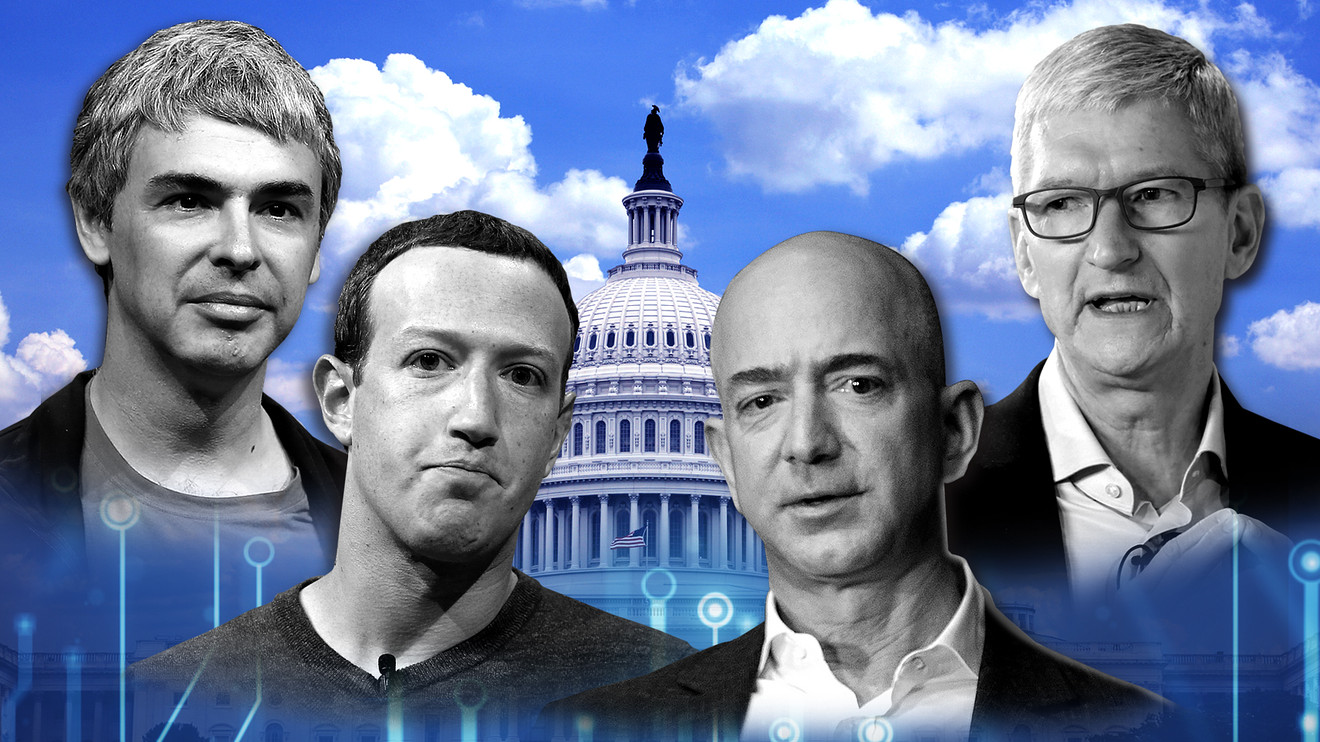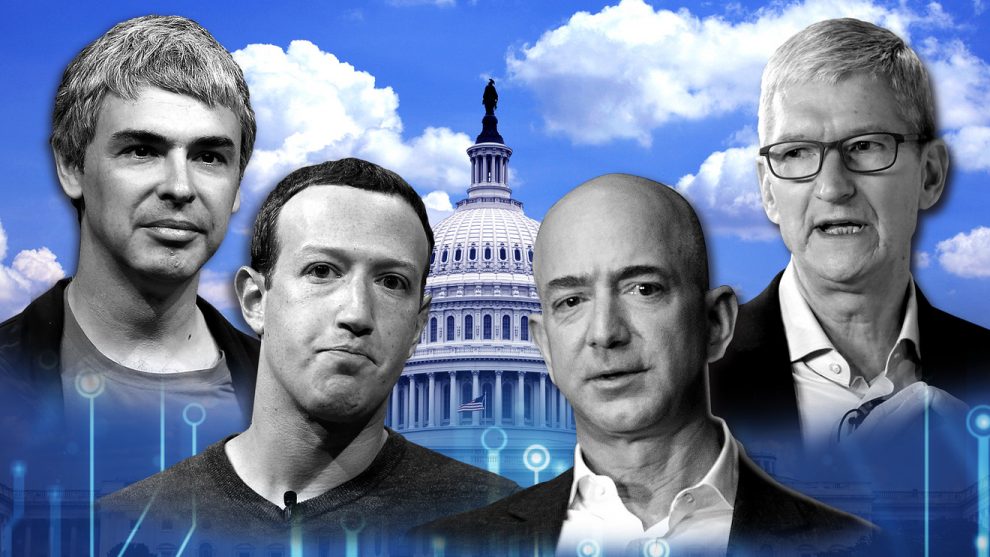
Big Tech faces another Big Moment on Capitol Hill on Tuesday.
In what is expected to be a contentious precursor to antitrust probes that could last years, members of the House Judiciary Committee’s subcommittee on antitrust matters are scheduled Tuesday to question representatives from Alphabet Inc. GOOGL, +0.11% GOOG, +0.06% Amazon.com Inc. AMZN, +0.50% Apple Inc. AAPL, +0.77% and Facebook Inc. FB, +1.81% on the enormous power they wield.
It’s the first high-profile encounter between Silicon Valley and the Beltway since the Trump administration targeted the four companies for potential monopolistic behavior in early June.
For more news: Feds target four of the biggest tech companies in U.S., and their stocks are getting slammed
“There is increasing agitation among Democrats” who hold the majority in the House, Herbert Hovenkamp, a professor at the University of Pennsylvania who teaches at both its law and business schools, told MarketWatch in a phone interview. “I expect focus on exclusionary contracts, such as the one Apple has with its App Store (the subject of a class-action lawsuit), and acquisitions of smaller tech firms. The large tech companies are buying lots of them to prevent startups in related fields from emerging as the next Facebook or Google.”
Stanford Law School professor Doug Melamed, who served briefly as acting assistant attorney general for the Department of Justice in late 2000 and early 2001, anticipates Democrats “continuing the drumbeat to put pressure on the DoJ to get antitrust proceedings “rolling.”
The hearing is likely to set the stage for greater scrutiny — or regulation — though unlikely to generate the buzz of previous Capitol Hill hearings, when executives such as Facebook CEO Mark Zuckerberg and Google CEO Sundar Pichai were filleted by members of Congress over data and privacy issues. Scheduled to appear Tuesday are Kyle Andeer, Apple’s vice president for corporate law and chief compliance officer; Adam Cohen, director of economic policy at Google; and Matt Perault, head of global policy development at Facebook.
An Amazon.com spokeswoman had no comment, but confirmed that Nate Sutton, its associate general counsel who previously worked in the DoJ, would represent the company in the hearing.
Facebook had no comment. Alphabet and Apple did not reply to email messages seeking comment.
Rep. David Cicilline, D-R.I., chairman of the House Antitrust Subcommittee, has established an especially combative tone. “If you look at the size of some of the large platforms, their ability to exclude people from the platform can result in closing the business,” Cicilline said in late June. “That’s sort of the most dangerous consequence of this kind of concentration — the ability to exclude rivals, put them out of business, diminish innovation, diminish entrepreneurship, diminish choices for consumers.”
What should alarm tech, Hovenkamp and others argue, is that such sentiment spills into both parties. While President Donald Trump has suggested the U.S. government “should be suing Google and Facebook” on antitrust grounds, two Democratic candidates for president — Sens. Elizabeth Warren, D-Mass., and Amy Klobuchar, D-Minn. – are pushing for drastic regulatory actions against the industry as central tenets of their campaigns. Warren has gone so far as to demand splitting up Amazon, Apple, Google, and Facebook.
Warren has made the breakup of big tech a staple during town halls, and put up a billboard in Silicon Valley to make her case.
For more news: https://www.marketwatch.com/story/the-antitrust-suspects-facebook-and-apple-appear-to-be-most-at-risk-2019-06-18
Among the experts slated to testify is Tim Wu, a professor of law, science, and technology at Columbia University. He estimates Facebook has devoured at least 92 companies—many of them competitors that included WhatsApp and Instagram—since 2007 without the federal government challenging one purchase. It shut down 39 companies, some of which may have represented future competitors, Wu claims.
The presence of legal minds from tech’s largest companies could lead to more substantive exchanges with Congress over “complicated issues that require some understanding of the law,” Avery Gardiner, senior fellow for competition, data, and power at the Center for Democracy Technology, told MarketWatch. Gardiner served in the antitrust division of the DoJ as a trial attorney and counsel from 2005-8.
“My hope is that we get beyond the platitudes, and focus on the impact on consumer welfare, and how antitrust can help that,” she said.
As tech braces for what could be another contentious day on Capitol Hill, it should note bipartisan legislation such as DASHBOARD Act, co-written by Sen. Josh Hawley, R-Mo., and Mark Warner, D-Va. It would require Facebook, Google, Amazon and other major platforms to disclose the value of their users’ data and reveal contracts with third parties regarding data collection.
“The cat is out of the bag. It would help if government offered some guidelines,” Andrew Proctor, director of IT operations for OpenVPN Technologies Inc., a privately held networking and software company with security products, told MarketWatch. OpenVPN is one of many smaller tech companies in favor of regulation to rein in big tech’s access to personal data.
“Our concern is that legislation has been tardy because of the influence lobbyists have had on behalf of the large companies, and a general ignorance among lawmakers about how tech works,” Proctor said.












